EIVP, l’Ecole des Ingénieurs de la Ville de Paris, Grande Ecole of urban engineering, and ECT, signed a sponsorship agreement on October 23, 2018, marking an important milestone in their collaboration. This partnership – which lasted 2 years and has since been renewed – involves the creation of a teaching and research chair dedicated to the reclamation of soil from urban construction sites.
The EIVP ECT Chair, with its interdisciplinary approach, is devoted to training and research on the reuse of soil from building sites and excavation work in large urban areas. In particular, this reuse can take shape as part of development projects based on the principles of the circular economy, in collaboration with local authorities : parks, promenades, sports sites, gardens, urban farms or photovoltaic power plants.
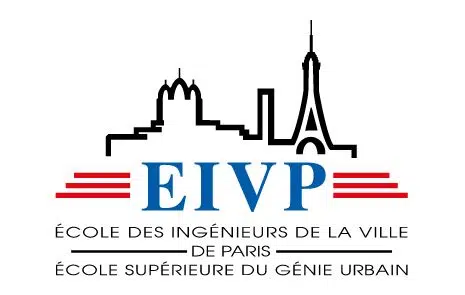
School of Engineers of the City of Paris – EIVP
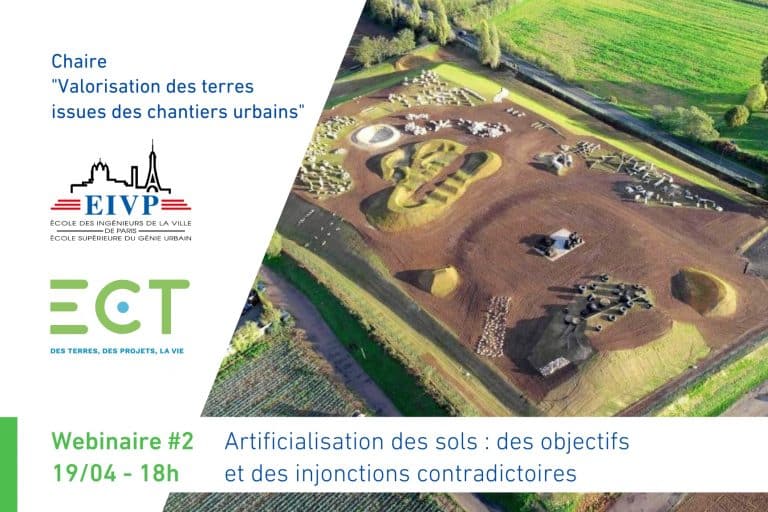
19/04/2023
4 webinars follow up on the book Terres Urbaines by the EIVP x ECT Chair
ECT and EIVP organize a series of 4 webinars on urban land. These discussions are an extension of the book“Terres urbaines, valeurs positives pour la ville de demain”, edited by the Chair and published by ÉditionsEyrolles. This interactive format gives the floor to experts in landscape, urban planning and urban engineering. And better understand thehe challenges of the circular economy for excavated soil. Webinar #2, soil artificialisation: contradictory objectives and injunctions On Wednesday April 19, take part in the second webinar dedicated to “Artificialisation des sols : des objectifs et des injonctions contradictoires”, an issue at the heart of the book “Terres urbaines, valeurs positives pour la ville de…
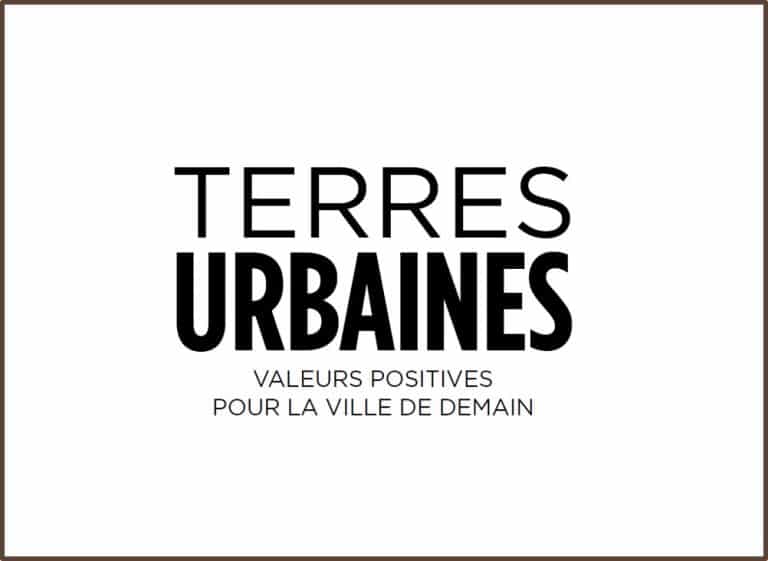
13/12/2022
New publication from the EIVP and ECT Chair
Paris, December 8, 2022 – The Chair in Urban Land Reclamation chair, run by the École des Ingénieurs de la Ville de Paris and ECT, publishes Éditions Eyrolles the book “Terres Urbaines, valeurs positives de la ville de demain”, edited by Youssef Diab. Excavated soil raises new development challenges The ecological transition is leading us to reconsider our approaches and practices to urban development, which are marked by excessive consumption of resources – materials, energy, water, land, etc. – and by a lack of transparency. – and a lack of recycling. The question of excavated soil and its recovery is essential, and its systemic dimension is all too often…

03/06/2021
June 2021 “Urban Lands” symposium, to watch in replay
Urban soils, positive values for the city of tomorrow, symposium June 22 and 23, 2021 This new colloquium proposed by the EIVP & ECT “urban land reclamation” chair was held in partnership with ENSP, with the participation of Cycle Terre. After a first symposium in April 2019 around “earth in all its states”, which analyzed urban land as a resource and material with multiple dimensions, ECT and EIVP are taking the discussion further by placing land at the heart of current debates on the sustainable city. Social, environmental and economic issues are at the heart of the EIVP’s teaching and research Chair. Land is a little-known resource, and we…
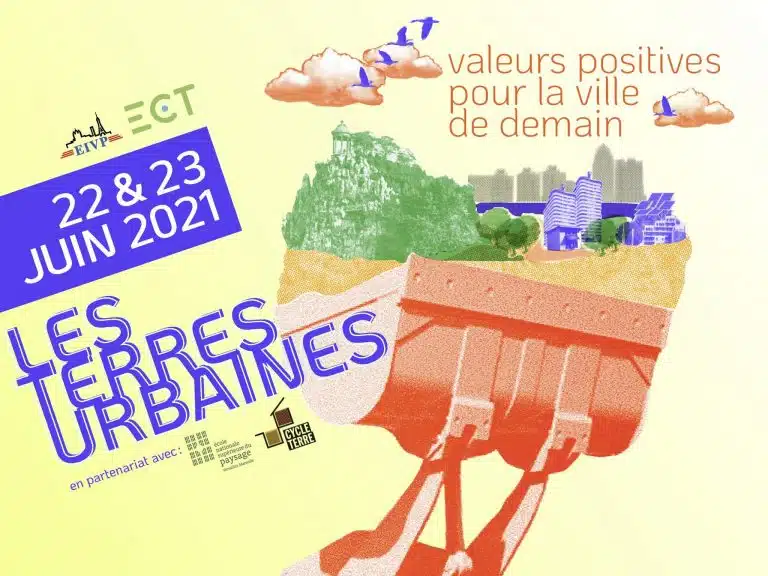
21/05/2021
EIVP and ECT Chair, new 2021 symposium “Urban soils, positive values for the city of tomorrow”.
New EIVP / ECT symposium: “Urban soils: positive values for the city of tomorrow”. On June 22 and 23, the Ecole des Ingénieurs de la Ville de Paris (EIVP) and ECT organized the “Valorisation des terres issues des chantiers urbains” chair, in partnership with L’Ecole Nationale Supérieure de Paysage de Versailles (ENSP) and with the participation of Cycle Terre, a new symposium. An opportunity for ECT and EIVP to explore and share ideas that place land at the heart of current debates on the sustainable city in a number of ways: a vector for rehabilitating neglected sites, a structuring element for the new territorial landscape, environmentally-friendly building material an…
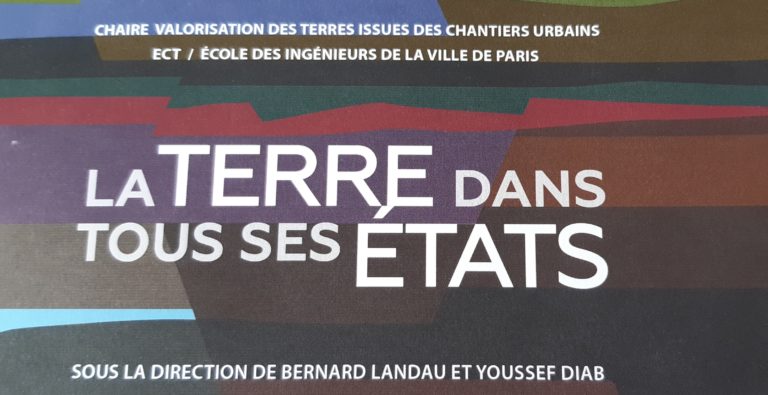
28/09/2020
Rentrée littéraire – “The earth in all its states
ECT / EIVP Chair in soil reclamation from urban construction sites EIVP, a leading urban engineering school, and ECT, the French leader in excavated soil reclamation, have organized a first symposium in April 2019 “La Terre dans tous ses états” (Earth in all its states). The symposium gave rise to the idea of a collective work, published by Presses des Ponts. This book was produced under the direction of Bernard Landau, Chairman of the EIVP’s Public Space, Planning and Mobility teaching and research department, and Youssef Diab, Scientific Director of the EIVP. It is prefaced by Antoine Grumbach, Grand Prix de l’Urbanisme and Chairman of the Scientific Committee of…
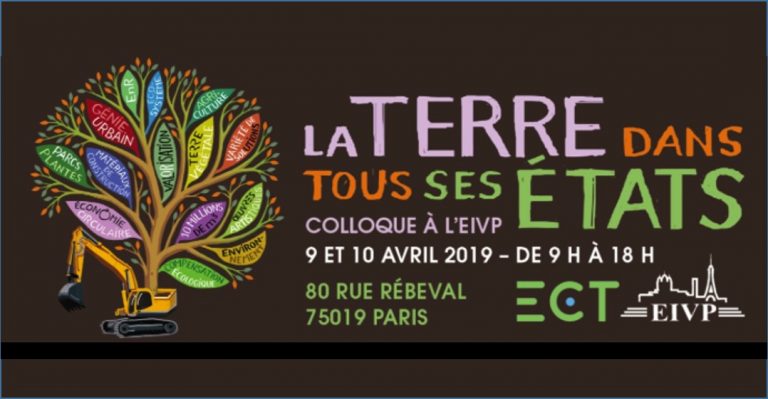
25/02/2019
First symposium on the reuse of inert soil by EIVP and ECT -April 2020
The earth is a wonderful resource! On April 9 and 10, 2019, the Ecole des Ingénieurs de la Ville de Paris and ECT are organizing a symposium on the theme of “Earth in all its states”. Henri Bava and Antoine Grumbach, both winners of the Grand Prix de l’Urbanisme, will conclude the 2-day exploration of earth engineering. This symposium is part of the EIVP and ECT “Valorisation des terres issues des chantiers urbains” chair . Conferences and round tables: researchers, planners, elected representatives, experts Visit: ECT’s excavated soil reclamation site at Moissy-Cramayel (77) All you need to know and register Every year in the Paris region, the construction and…

24/10/2018
ECT and EIVP create a chair dedicated to reclaiming soil from urban construction sites
On October 23, 2018, EIVP, Ecole des Ingénieurs de la Ville de Paris, Grande Ecole of Urban Engineering, and ECT, a leading company in high value-added development in territories through the reclamation of backfill and excavated soil, signed an agreement. sponsorship agreement marks an important stage in their close collaboration. The 2-year partnership covers creation of a dedicated teaching and research chair recycling soil from urban construction sites. This interdisciplinary chair will focus on training and research into the reuse of soil from building sites and excavation work in large urban areas. In particular, this reuse can take shape as part of development projects in line with the principles…